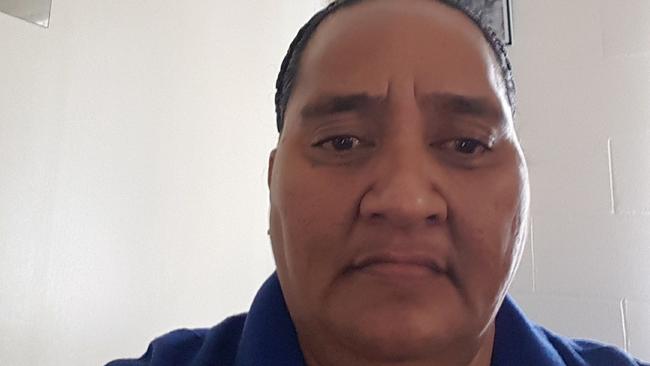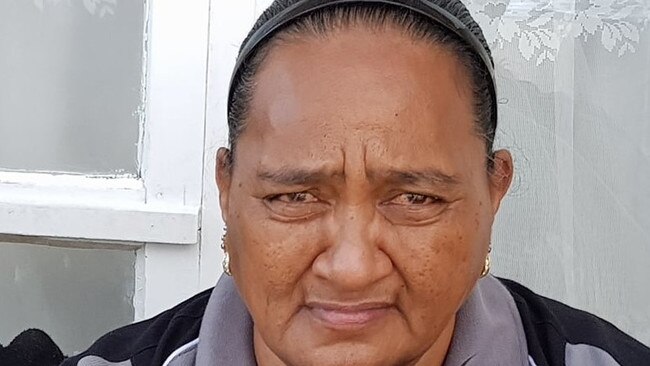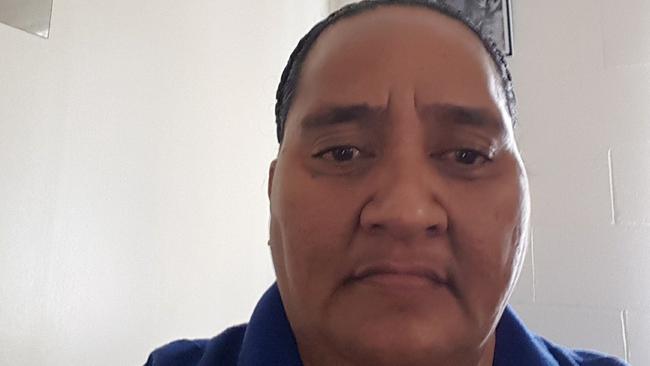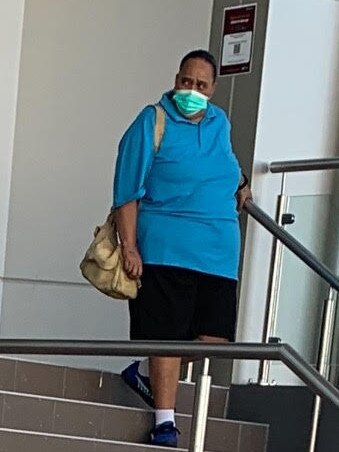Care worker Lena Whakaata Ahuriri found guilty on seven counts of assaulting disabled clients
Police prosecution said the experienced disability carer, who was employed by Endeavour Foundation in Rockhampton, should never work in the industry again. Here’s the decision that was delivered by a magistrate.

Police & Courts
Don't miss out on the headlines from Police & Courts. Followed categories will be added to My News.
A disability care worker with almost two decades experience in the Rockhampton industry has been effectively banished from the sector after being found guilty on seven counts of assaulting patients in her care.
On February 11 in Rockhampton Magistrates Court, Magistrate Cameron Press delivered his decision in the case of Lena Whakaata Ahuriri, 60.
Ms Ahuriri was charged with eight counts of common assault and it was alleged the offences happened while she was working as a disability carer in Rockhampton between December 31, 2015, and January 1, 2018.
During that period, Ms Ahuriri was employed by Endeavour Foundation and worked at a disability care facility in Pearson Street, Rockhampton.
At that facility, clients are disabled both physically and intellectually and require full-time, 24-hour care.
It was alleged that Ms Ahuriri, in the course of her duties as a carer at the facility, had assaulted three clients who resided there.
In this matter, the onus was on the prosecution to prove its case beyond reasonable doubt.
At an earlier court hearing, the prosecution called witnesses including disability support workers Chloe Govaars, Michelle Taylor and Sarah Stewart, Detective Senior Constable Chris Green, general manager of Home Services for Endeavour Foundation Kim Moyes, psychiatrist Dr Peter Rofe and neurologist Dr Paul Sandstrom.
Ms Ahuriri gave evidence herself and she did not call any witnesses.
It was alleged that each of the assaults was witnessed by one of the three disability support workers who gave evidence for the prosecution.
Mr Press noted that separate charges had been preferred and said he had considered the evidence relating to each charge separately.
He said it was apparent from the evidence given by doctors Rofe and Sandstrom, that all three patients being the alleged victims, did not have the capacity to give evidence at a trial despite their adult ages.
Mr Press further stated that based on the evidence given by both doctors, he found that all three patients, because of their disabilities, could at times exhibit behavioural problems including grabbing and biting carers, and/or striking out with their upper limbs.
“I find that (two of the patients) have at times been medicated in order to moderate their behaviour,” Mr Press said.
“Though it is not clear whether such medication was being administered to (these patients) around the time of these alleged incidents.”

Mr Press said he found the disability carers, including Ms Ahuriri and the three prosecution witnesses, were aware of such problems and were trained in techniques that attempted to lessen the impact of such behaviour by disability patients.
He said he found that such training did not entail applying force that would inflict pain or suffering to the patient.
“I find that such training was provided from time to time by Endeavour to its disability support carers and that there was a general policy and expectation that disability carers would not inflict pain or suffering upon the patients,” Mr Press said.
Mr Press said the prosecution case substantially relied on the evidence of the three disability care workers and their observations of the alleged eight incidents.
Michelle Taylor gave evidence that she had been with Endeavour Foundation and worked for it since about 2016.
She said in her evidence that in 2016 and 2017, she was working at the Pearson Street facility.
In relation to one of the alleged incidents, Ms Taylor said she arrived at work and Ms Ahuriri had one of the clients in the shower.
Ms Taylor said the client moved when Ms Ahuriri was shaving him and she (Ms Ahuriri) didn’t like it.
“So she (Ms Ahuriri) lifted her hand and slapped him across the face,” Ms Taylor said in her evidence.
Ms Taylor said it was “very sad” as the client did not speak because he was non-verbal.
“So he didn’t quite even understand what was happening and the look on his face was very sad too,” Ms Taylor said.
Ms Taylor also gave evidence about another time when she said she saw Ms Ahuriri with the same client at a corner of the bathroom.
“...and I had reason to come back to the back-house and I saw (Ms Ahuriri) kick (the client),” Ms Taylor said.
“He didn’t fall, but at the same time, big heavy steel cap boots don’t exactly tickle.”
Ms Taylor said Ms Ahuriri had connected with the client’s shin.
Ms Taylor said, in relation to another client who grabbed carers with his fingers and held on, she witnessed Ms Ahuriri “on more than one occasion” grab him by the fingers and pull his fingers back towards the back of his wrist for grabbing with his nails.
“...there was a time when I was standing in the house and he (client) was having a meal, sitting at the table,” Ms Taylor said.
“...he did grab and (Ms Ahuriri) grabbed his fingers and pulled them back towards his wrist. She pulled them back quite far. He’s only a little fellow and it did hurt. He screwed his face up.
“He sort of looked at me. You could sort of tell that he was in pain but he can’t talk so he couldn’t tell you.”
Ms Taylor said in a bathroom incident involving a client, Ms Ahuriri put her knee into the client’s back and thrust him up against a wall because he wasn’t doing as he should of been doing.
During cross-examination Ms Taylor was asked if she had reported what she had seen, to which she replied she had reported it to a manager and two other people.
Also during cross-examination, it was put to Ms Taylor that there was “no love lost” between her and Ms Ahuriri.
Ms Taylor replied: “I actually like Lena as a person, thank you.”
It was also put to Ms Taylor that she was pursuing the allegation as a vendetta.
Her response was: “No I’m pursuing it because the clients can’t speak.”
It was put to Ms Taylor that the three clients had the potential to be aggressive and her response was “yes”.
And it was put to her that force was needed sometimes to extricate yourself from their grasp and Ms Taylor replied: “Not force in the way of abuse”.
Ms Taylor was questioned about the allegation that a client’s fingers were pulled back and she said: “I have never still in my life seen somebody’s fingers go back as far as I saw (client’s) on that actual occasion.”
Ms Taylor was asked if that client screwed his face up and she replied: “In pain, absolutely.”

In Sarah Stewart’s evidence, she said she was employed by Endeavour from about 2016 and she mainly worked at the Pearson St facility.
Ms Stewart spoke about an incident where a client had pulled her hair.
On this occasion, Ms Stewart had finished with the client’s shower and she had wheeled him into a corner of the bathroom to get him sorted and in preparation to get him dressed.
Ms Stewart said the client grabbed the top of her head, in particular her hair.
She said she asked him numerous times to let go but he didn’t.
Ms Stewart said she sang out to Ms Ahuriri to come and assist her and when Ms Ahuriri did, Ms Ahuriri grabbed a hold of both of the client’s hands.
“She stood on his toes with her steel capped boots that she wore to work,” Ms Stewart said.
“She grabbed a hold of his hands and she ended up bending his fingers back towards his wrist.
“And she looked him in the face and said ‘I’ll f---ing break your fingers (client’s name)’.”
Under cross-examination, Ms Stewart was asked if she had lodged a risk management report about this incident and she said she did lodge this with a supervisor and no-one communicated with her further about the report.
Ms Stewart recalled another incident where a client’s fingers were “bent back towards his wrist” by Ms Ahuriri and “they nearly touched his wrist”.
During Ms Ahuriri’s evidence, she said she started at respite care in March 2003 and she finished up with Endeavour in July 2020.
Ms Ahuriri denied that she ever slapped one of the clients across the face.
When she was asked about an alleged incident where it was alleged she bent a client’s fingers backwards, she denied doing so.
Ms Ahuriri was asked if she had ever said the words, as had been alleged: “I’ll f---ing break your fingers (client’s name).” She replied: “No, I did not.”
She was further asked if she had bent a client’s fingers back until they almost touched his wrist and she denied ever doing that.
Ms Ahuriri was asked if she had ever dug her fingers into one of the client’s arms and she denied that.
When she was asked if she recalled an incident where she pushed her knee into the back of one of the clients, forcing his face flat against the wall, she denied such an incident.
She was asked if she recalled an incident where, while removing a client from the shower, she kicked him in the shin, and she denied such an incident.
Ms Ahuriri was asked if she remembered an incident where she forced a client to take pills and water in his mouth while holding his nose, and she replied: “I didn’t, I never do that. His medication goes with his food.”
When Ms Ahuriri was asked if anyone had ever filed a risk management report against her in relation to any of her conduct, she said: “No.”
Ms Ahuriri denied ever threatening anyone at work.
In relation to an occasion where she went to help another worker, Ms Ahuriri denied ever bending or pulling a client’s fingers back.
She denied standing on any patient’s foot at any time.

What Magistrate Press ruled
The evidence given by the three disability support workers
Mr Press said he did accept the evidence of witnesses Chloe Govaars, Michelle Taylor and Sarah Stewart in relation to their observations of the alleged assaults.
“I did find the evidence of each of the said three witnesses credible and compelling,” Mr Press said.
“They each gave their evidence in a forthright and confident manner.
“Even under cross-examination, they were confident and consistent in their recollection of their observations of the alleged assaults.
“There was nothing in their evidence to suggest that they were constructing their recollections, either intentionally or unintentionally.
“And there was nothing in their evidence to suggest they were prejudiced or biased against the defendant.
“Indeed, they expressed a degree of respect for the defendant.
“I find that the three witnesses would not have given the evidence they did, unless they were certain of their observations.
“Further, there was nothing in their evidence or cross-examination that leads me to conclude that their recollections are unreliable or have been tainted by the passage of time.”
The evidence given by Ms Ahuriri
“I reject the evidence of the defendant,” Mr Press said.
“I did not find her to be a reliable witness. Her evidence was guarded, and particularly guarded in responses at times. It was not compelling. No evidence was given by either Govaars, Taylor or Stewart, that they observed any threatening behaviour on the part of the alleged victims immediately prior to the assaults, apart from where the hair was being pulled.”
The one assault charge that was dismissed
In relation to an allegation that Ms Ahuriri dug her fingernails into the arm of a client, Mr Press said: “There actually was no evidence led, being observational evidence or other evidence, to support a finding that the elements of that offence had been proved. I must find that the defendant, in respect of that charge, is not guilty.”
The other seven assault charges
Mr Press found, being satisfied beyond reasonable doubt on these seven charges, that:
- Ms Ahuriri did slap a client across his face while shaving him.
- Ms Ahuriri did slap a (different) client across his face while shaving him.
- Ms Ahuriri bent the fingers of a client back towards his wrist saying “I’ll f---ing break your fingers (client’s name)”.
- Ms Ahuriri bent the fingers of a (different) client backwards until they almost touched the top of his wrist.
- Ms Ahuriri did push her knee into the back of a client, forcing him face first, flat against the wall.
- Ms Ahuriri, after removing a client from the shower, kicked him in the shin while dressing him.
- Ms Ahuriri did place multiple pills and water into a client’s mouth and squeezed his nose to make him swallow, and further, that that action was unlawful.
The filing of reports
Mr Press said he accepted the evidence of Chloe Govaars, Michelle Taylor and Sarah Stewart, and he found that reports or communications of their observations were made to their employer.
“For some reason, the employer has not kept proper records,” Mr Press said.
“I note, however, there were management changes during the relevant periods, and subsequently.”
Prima facie case
Mr Press said there was no evidence to support a prima facie case, at the time of the alleged assaults, of extraordinary emergency, and he ruled accordingly.
Prosecution submission on penalty
Police Prosecutor Sergeant Kevin Ongheen said Ms Ahuriri had no criminal history.
In his penalty submission, Sgt Ongheen said Ms Ahuriri had to be deterred, as did other people, from committing the same or similar offence.
He added that the court had to “make it clear to the community” that this behaviour was denounced.
“That sort of conduct that this defendant has engaged in is denounced,” Sgt Ongheen said.
“That is important in this case, because this defendant has been the carer of disabled persons who are virtually voiceless.
“In terms of the extent to which the defendant is to blame for these offences, she is singularly to blame.
“Her age, and character, and intellectual capacity would suggest that she has the ability to reason clearly.
“As a professional in the disability sector, this behaviour, these offences, the assaults, are unacceptable.”
Sgt Ongheen said based on Ms Ahuriri’s lack of criminal history, a sentence of 150 hours’ community service would be appropriate.
“Importantly, the prosecution would be seeking a conviction be recorded for this defendant,” Sgt Ongheen said.
“Because it is the submission of the prosecution that this defendant should not work in the disability sector.
“And the risk of not imposing a conviction could be that, in certain circumstances, this defendant may re-enter that sector and gain employment, whether it be in this State, another State or another country.
“Similarly, a conviction being recorded would prevent participation in that sector, or other sectors of a like nature such as caring for the elderly or for children.”
Submission from Ms Ahuriri’s lawyer
Solicitor David Mills said Ms Ahuriri was 55 years old when she first became aware of these charges and she was currently single with no dependants.
He said she came to Australia from New Zealand in 2000 and she secured a Certificate III in the disability sector and since that time she had worked in that area.
Mr Mills said Ms Ahuriri had been unable to work since these charges were formally laid against her and she had been receiving Jobseeker funding, supplemented by her personal savings.
Mr Mills submitted that given Ms Ahuriri’s age and her lack of any prior history, a consideration that should be given to her was not having a conviction recorded.
Mr Press said: “But, but you see, the problem is, this defendant can never go back to this type of job, full stop.”
Mr Mills then said a conviction might affect Ms Ahuriri in working in some other health industry job like at a hospital or care work that did not involve the disabled.
“There’s a whole world out there that is moving towards the care and health industry and that’s all she’s ever done all her life,” Mr Mills said.
Mr Mills said Ms Ahuriri needed to do some work before she became eligible for a pension or benefit.
The sentence
Before handing down penalty, Mr Press said general deterrence was applicable because there were many unfortunate people in our community who were disabled or needed care.
“And indeed, it would seem those numbers are increasing,” he said.
“It can, no doubt, be frustrating and difficult at times caring for people, and it must be frustrating for the carers.
“But, however, because of the vulnerability of these people, they must be protected.
“And the court must send a clear message to carers that you have a duty to the people you’re looking after, and that duty is not fulfilled by assaulting them.
“It is behaviour that should be denounced.
“I accept that you may have incorporated a more robust method into your caring duties, but that method is wrong.
“It is unfortunate that your actions were not checked here, earlier when complaints were made.
“In that case you might have found yourself not facing the situation that you are today.
“I don’t have to tell you that each of these three complainants were very disabled, largely unable to communicate.
“I’m not sure the effect that the assaults have had on them.
“But it is clear that the assaults had had an effect on some of the witnesses.”
Mr Press noted that references tendered spoke highly of Ms Ahuriri.
“And I have no doubt, that in other areas of your caring, you have performed very well,” he said.
But Mr Press stated there was a “multiplicity” of offending here, not just one matter that came before the court.
He noted the victims of the seven assaults, it would seem did not suffer any lasting injuries and that was relevant.
Mr Press sentenced Ms Ahuriri to 150 hours’ unpaid community service with conditions.
He said he had formed the view that it was important the community be protected and that Ms Ahuriri did represent a risk to patients and clients because of the “multiplicity” of the offending.
Mr Press recorded convictions.
“I take the view that they must be recorded because you cannot, and should not, be employed in this industry or in any industry where there are patients involved,” he said.
“The risk is too great and I consider that it is in the best interests of justice that here, convictions do be recorded.”
Footnote: This publication chose not to publish the names of the victims in this case.





